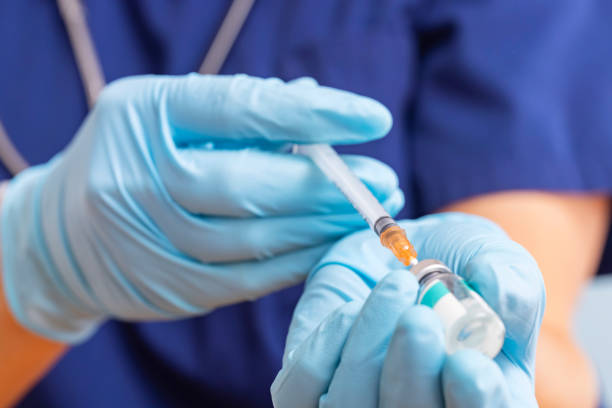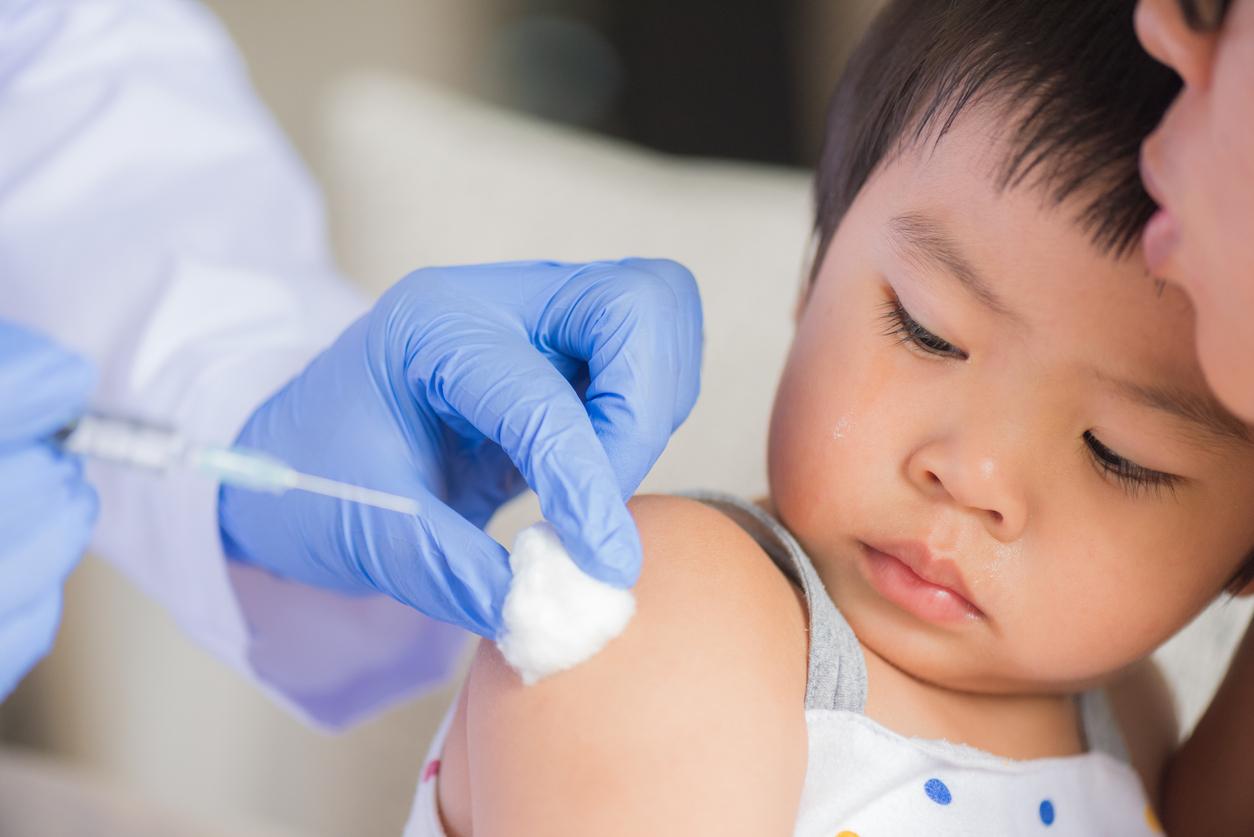Coming just 2 days after US Health and Human Services (HHS) secretary Robert F. Kennedy, Jr., removed all 17 members of the Centers for Disease Control and Prevention (CDC) vaccine advisory committee, yesterday he announced a group of eight new members, some of whom are vaccine skeptics.
On X, he said the appointments were designed to restore public trust in vaccines, and the eight members will attend the next scheduled meeting of the Advisory Committee on Immunization Practices on June 25.
According to the Federal Register, the group is slated to discuss several vaccine topics during the 3-day meeting, with recommendation votes scheduled for COVID-19 vaccines, human papilloma virus (HPV) vaccine, influenza vaccines, meningococcal vaccine, respiratory syncytial virus (RSV) vaccines for adults, and RSV vaccine for maternal and pediatric populations. The group is also slated to vote on Vaccines for Children (VFC) program vaccines for COVID-19, HPV, influenza, and RSV.
The CDC has always had a rigorous vetting process for ACIP members who apply to the committee as seats become vacant when members rotate off the committee. The application process known to take as long as 2 years. “These positions are held by technically qualified people trained in a clinical medical field and possessing in-depth knowledge of vaccines and immunization,” CDC background information says.
Members are also required to declare potential conflicts of interest. Applications are typically done by the CDC’s ACIP steering committee, with final selection by the HHS secretary.
It’s not clear how the eight members were vetted and if the ACIP steering committee was involved. CBS News reported that career CDC employees who oversee ACIP have been removed from their roles. The team was led by Melinda Wharton, MD, MPH, the CDC’s associate director for vaccine policy.
Eight members include some vaccine critics
Though Kennedy had said earlier this week that none of the new ACIP picks would be “ideological anti-vaxxers,” the group includes multiple vaccine skeptics. The eight ACIP appointees are:
Joseph Hibbeln, MD, is a psychiatrist and nutritional neuroscientist who worked at Barton Health in South Lake Tahoe, California, nearly 3 years ago. He earned his medical degree at the University of Illinois College of Medicine in 1988, did his psychiatry residency at the University of California Los Angeles (UCLA), and completed a fellowship at the National Institute on Alcohol Abuse and Alcoholism (NIAAA) at the National Institutes of Health, according to his LinkedIn profile.

Hibbeln has held posts at the NIAAA (chief of the outpatient clinic and acting chief of the section on nutritional neurosciences), the US Public Health Service, and as a visiting professor at the University of Bristol in England.
Known for his work on the role of omega-3 fatty acids in depressive and aggressive disorders and fish consumption during pregnancy in promoting higher intelligence and better social behaviors in children, he serves on the advisory council for the Seafood Nutrition Partnership, a nonprofit US organization focused on "building awareness of the health and nutritional benefits of seafood."
A PubMed search for studies Hibbeln coauthored turned up research on topics such as the link between nutrition and behavioral disorders, the potential correlation of omega-3 fatty acid deficiencies and increased risk of homicide and suicide, and vegetarian diets and depression in men but only one vaccine-related study concluding that pregnant women's mercury levels weren't tied to increased autism cases in those who ate fish.
Martin Kulldorff, PhD, is a Swedish biostatistician who earned his doctorate in operations research from Cornell University in 1989. A professor of medicine at Harvard Medical School from 2003 until he was fired in 2024 for what he says was refusing the COVID-19 vaccine. H e was a member of the US Food and Drug Administration's Drug Safety and Risk Management Advisory Committee and the ACIP's Vaccine Safety Subgroup.
Today, Reuters reported that Kulldorff served as an expert witness against Merck's Gardasil human papillomavirus (HPV) vaccine. CDC rules prohibit vaccine advisors working in this role.
In 2020, he cowrote the Great Barrington Declaration, which pushed for relaxing COVID-19 restrictions for low-risk groups to promote herd immunity until vaccines became available, a notion that public health officials dismissed as unethical and unfeasible. Kulldorff vocally opposed virus-mitigation measures such as vaccination of children, school closures, lockdowns, contact tracing, and masks.
He has been a leader at the Brownstone Institute, which opposes COVID-19 restricts and publishes literature on the dangers of the COVID-19 and other vaccines. Kulldorff published an article in the journal he co-founded, the Journal of the Academy of Public Health, in March urging NIH reforms, including the creation of a commission to investigate the agency's pandemic response. He also declared his support for Kennedy's call for randomized, placebo-controlled vaccine trials, which public health experts have said may be unethical.
"His expertise includes statistical methods for public health surveillance, immunization safety, and infectious disease epidemiology," Kennedy said on X.
Retsef Levi, PhD, a professor of operations management at the MIT Sloan School of Management, earned his doctorate in operations research at Cornell University in 2005, according to his MIT faculty profile. His research has focused on healthcare management and supply chain and logistics.
His stance on COVID-19 vaccines is clear. During the pandemic, Levi and colleagues published studies suggesting increased rates of cardiac events and myocarditis associated with the vaccine rollout in Israel. In January 2023, Levi wrote on X, "The evidence is mounting and indisputable that MRNA vaccines cause serious harm including death, especially among young people. We have to stop giving them immediately!"
In an interview on a blog published today, Levi said that mRNA vaccines have caused the deaths of young people and children and that "mRNA vaccines should not be given to anybody young or healthy. It is also not at all clear to me that they should be given to anybody, based on the evidence," including elderly adults.
In a 2023 podcast, Levi said he had little vaccine expertise but had studied safety and quality issues in drug production and had expertise in advanced analytics and data. "His expertise spans healthcare systems optimization, epidemiologic modeling, and the application of AI [artificial intelligence] and data science in public health," Kennedy wrote.
Robert W. Malone, MD, is a physician and infectious-disease researcher who earned his medical degree at Northwestern University in 1991. He takes partial credit for inventing mRNA vaccine technology (he did some early research) yet has incorrectly suggested that the Pfizer and Moderna mRNA COVID-19 vaccines could worsen infections. He is known for his podcast appearances in which he criticized the pandemic response and questioned COVID-19 vaccine safety, including a 2021 appearance on Joe Rogan's podcast in which he spread misinformation on the vaccines.
On X, Kennedy said that Malone has held academic positions at the University of California Davis and the University of Maryland and has held advisory roles for HHS and the Department of Defense. "His expertise spans molecular biology, immunology, and vaccine development," Kennedy wrote.
H. Cody Meissner, MD, a professor of pediatrics and medicine at the Dartmouth Geisel School of Medicine, earned his medical degree from Tufts University in 1973, completing a residency at New England Medical Center. According to his CV, he is a vaccine subject matter expert and has served the Advanced Strategic Planning and Research (ASPR), the Biomedical Advanced Research and Development Authority (BARDA), and HHS.
He was an ACIP member of ACIP from 2008 to 2012 and has served on the FDA’s Vaccine and Related Biologic Products Advisory Committee (VRBPAC) and as chair of the HHS's Vaccine Injury Compensation Program. During the pandemic, Meissner cowrote an editorial with FDA Commissioner Marty Makary arguing against masks for children.
While he has credited vaccines for saving millions of lives and praised COVID-19 vaccines, he recently told Reuters that he supports Kennedy's decision to not recommend COVID-19 vaccination for healthy children and pregnant women. He also has characterized the US vaccine-event reporting system as "pretty good" and praised Peter Marks, the FDA vaccine regulator ousted by Kennedy.
In previous conflict-of-interest disclosures, Meisser reported having received money from Pfizer, AstraZeneca, Roche, and other pharmaceutical companies for clinical trials.
"His expertise spans vaccine development, immunization safety, and pediatric infectious disease epidemiology," Kennedy wrote on X.
James Pagano, MD, a retired emergency medicine physician and emergency room medical director at Emergent Medical Associates in Santa Monica, California, earned his medical degree at Rush University in 1978, his LinkedIn profile states. On X, Kennedy said Pagano completed a residency at UCLA, has more than 40 years of clinical experience, and has served on "multiple hospital committees, including utilization review, critical care, and medical executive boards. He is strong advocate for evidence-based medicine." Little other information on Pagano is available.
Vicky Pebsworth, PhD, RN, a regional director for the National Association of Catholic Nurses, received her doctorate from the University of Michigan in 1999.

She is a board member of the Virginia-based National Vaccine Information Center (NVIC; formerly known as Dissatisified Parents Together), which repeatedly asked for the HHS to be relieved of its role as legal respondent and administrator of the Vaccine Injury Compensation Program. The NVIC also worked with Congress on the National Childhood Vaccine Injury Act of 1986, which allows a registry of vaccine injury reports and compensation.
The NVIC's website says is "dedicated to preventing vaccine injuries and deaths through public education and advocating for informed consent protections in medical policies and public health laws. NVIC defends the human right to freedom of thought and conscience and supports the inclusion of flexible medical, religious and conscientious belief exemptions in vaccine policies and laws."
According to the Chiropractic Society of Wisconsin website, Pebsworth has worked as an intensive care unit (ICU) nurse, healthcare administrator, health policy analyst, and researcher focused on public health policy, pediatrics, and patient safety.
She has served as a consumer representative of the Food and Drug Administration’s Vaccine and Related Biological Products Advisory Committee (VRBPAC), has worked for the National Vaccine Advisory Committee's Vaccine Safety Working Group, and was the consumer representative to the H1N1 Vaccine Safety Risk Assessment Working Group.
Pebsworth coauthored a 2006 analysis of adverse events after human papillomavirus (HPV) vaccination that were reported on the Centers for Disease Control and Prevention's Vaccine Adverse Event System (VAERS). Although the study didn't prove any reactions were linked to the Gardasil vaccine, Pebsworth (then known as Vicky Debold), was quoted in a 2007 NVIC news release titled, "HPV Vaccine Mandates Risky and Expensive: Vaccine Safety Group Finds Serious Reactions, High Costs."
Her Chiropractic Society profile says, "Her son—her only child—experienced serious, long-term health problems following receipt of seven live virus and killed bacterial vaccines administered during his 15-month well-baby visit which sparked her interest in vaccine safety research and policymaking and chronic illness and disability in children."
Michael A. Ross, MD, a physician in Virginia and a former professor of obstetrics and gynecology at Virginia Commonwealth University and a pediatrics professor at George Washington University (GWU), earned his medical degree at GWU.
He has been a board member, advisor, and executive at a broad array of private healthcare and life-science firms and health groups, mostly recently as chief medical officer at the Maryland startup Manta Pharma. An operating partner at the healthcare investment company Havencrest for the past 7 years, he was a presidential appointee on the CDC's Committee for Prevention of Breast and Cervical Cancer, according to his company profile.
Ross has also advised LarreaRX, a supplement manufacturer, and worked for India-based Cadila Pharmaceuticals, his LinkedIn profile says. He lists his specialties as contact lenses, international business, healthcare and pharmaceutical executive management, and pharmaceutical consulting.
His only publication in a scientific journal was a coauthored open letter to JAMA flagging a study published in the journal that found that the drug ivermectin didn't speed time to symptom resolution in patients with mild COVID-19 as "fatally flawed."
The letter reads, in part, "We oppose this fixation on randomized controlled trials at the expense of other clinical and scientific evidence and urge medical policymakers to restore balance to the practice of medicine."
Concerns about reliable information, vaccine access
Rep Kim Schrier, MD, (D-Wash.), said on X yesterday that some of the newly appointed ACIP replacements are anti-vaccine activists, including one who serves on the board of an organization that has widely been criticized as a source of vaccine misinformation.



















